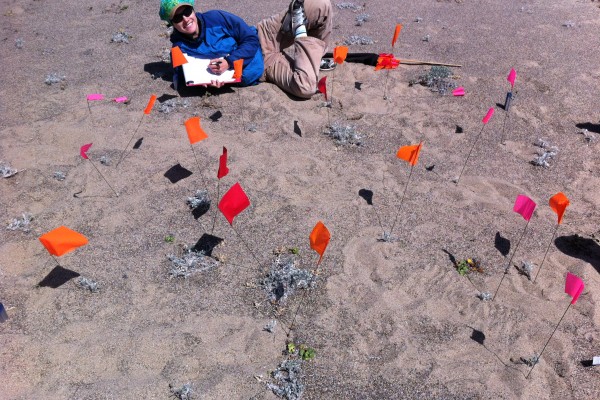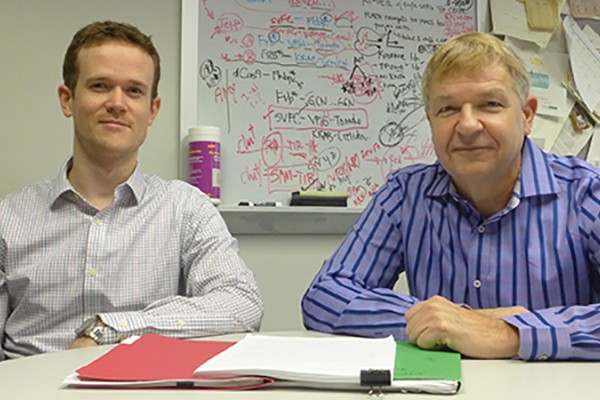The Sustainability Exchange: Interdisciplinary class tackles real-world problems
This spring, the schools of Engineering & Applied Science, Arts & Sciences and the Sam Fox School of Design & Visual Arts at Washington University in St. Louis launched “The Sustainability Exchange,” a unique course bringing students from across campus together to work on interdisciplinary teams to tackle real-world challenges in energy, environment and sustainability.
Rare dune plants thrive on disturbance
A demographic study of two endangered plants at Point Reyes National Seashore north of San Francisco shows that they favor recently disturbed open areas over areas that have established plant cover. The study strengthens the case for removing the beachgrass originally planted to stabilize the dunes and allowing the sand to move in response to storm surges and strong tides.
Tax-time savings programs effective in helping low-income families save refunds, study finds
Tax-time savings programs help low- and moderate-income families save significantly more of their refunds than those who choose not to participate, finds an analysis of such a program called $aveNYC. The study was co-authored by Michal Grinstein-Weiss, PhD, associate professor at Washington University in St. Louis, Brown School and associate director of the Center for Social Development.
Locusts provide insight into brain response to stimuli, senses
By training a type of grasshopper to recognize odors, a team of biomedical engineers at Washington University in St. Louis is learning more about the brain and how it processes information from its senses.
Discovery may open door for treating fragile X carriers
Fragile X syndrome, an inherited cause of autism and intellectual disability, can have consequences even
for carriers of the disorder who don’t have full-blown symptoms. Researchers at Washington University School of Medicine in St. Louis have identified
a potential target for treatment for fragile X carriers.
Gun violence initiative launches with standing-room-only event
Washington University in St. Louis kicked off a
yearlong initiative, “Gun Violence: A Public Health Crisis,” with a
panel discussion April 21 at the Eric P. Newman Education Center.
WashU Expert: Jenner letting go of ‘pressures to conform’ as he considers gender transition
Bruce Jenner, former Olympic gold medalist and patriarch of reality television’s Kardashian clan, is bringing national attention to issues of gender transition ahead of his April 24 interview with ABC News’ Diane Sawyer. One reason is that Jenner may finally have found a way to let go of pressures to conform, said Vanessa Fabbre of the Brown School at Washington University in St. Louis, an expert on later-in-life gender transitions.
Major pathway identified in nerve cell death offers hope for therapies
New research highlights how nerves – whether harmed by disease or traumatic injury – start to die, a discovery that unveils novel targets for developing drugs to slow or halt devastating neurodegenerative disorders such as Alzheimer’s disease, Parkinson’s disease and amyolateral sclerosis as well as peripheral nerve damage.
Extra sleep fixes memory problems in flies with Alzheimer’s-like condition
Many studies have linked more sleep to better memory,
but new research in fruit flies at Washington University School of
Medicine in St. Louis demonstrates that extra sleep helps the brain
overcome catastrophic neurological defects that otherwise would block
memory formation.
First U.S.-India joint EMBA program begins
International executives are ready to hit the ground running as the inaugural class of the Indian Institute of Technology Bombay (IIT Bombay) and Washington University in St. Louis joint Executive MBA program. An intensive residency focusing on leadership and management began April 22 in Mumbai for the inaugural first cohort.
View More Stories


